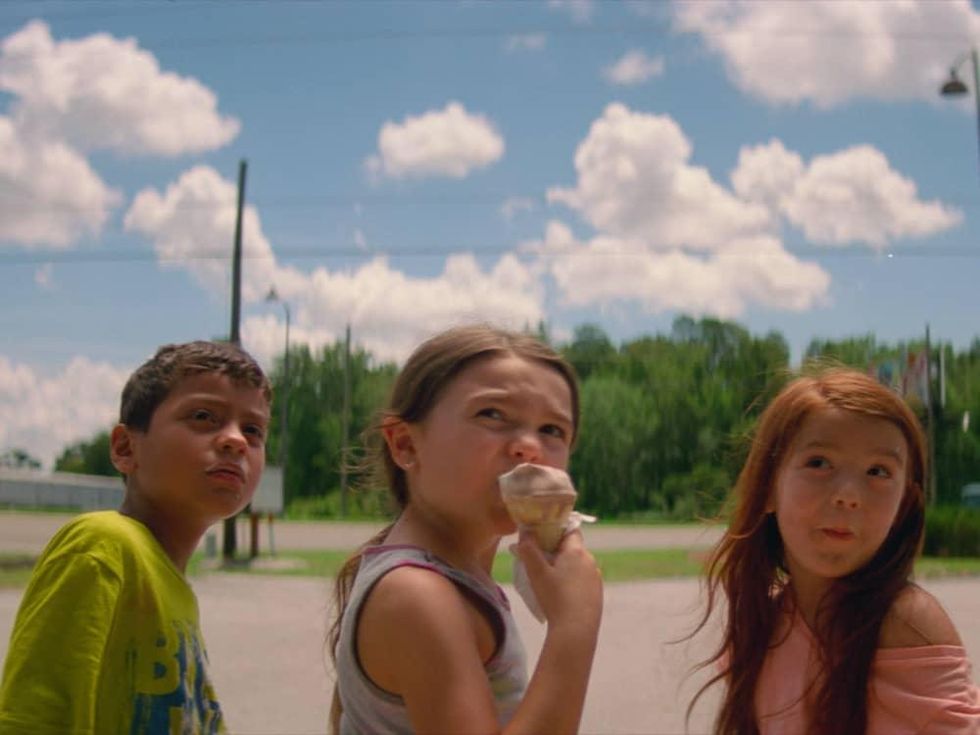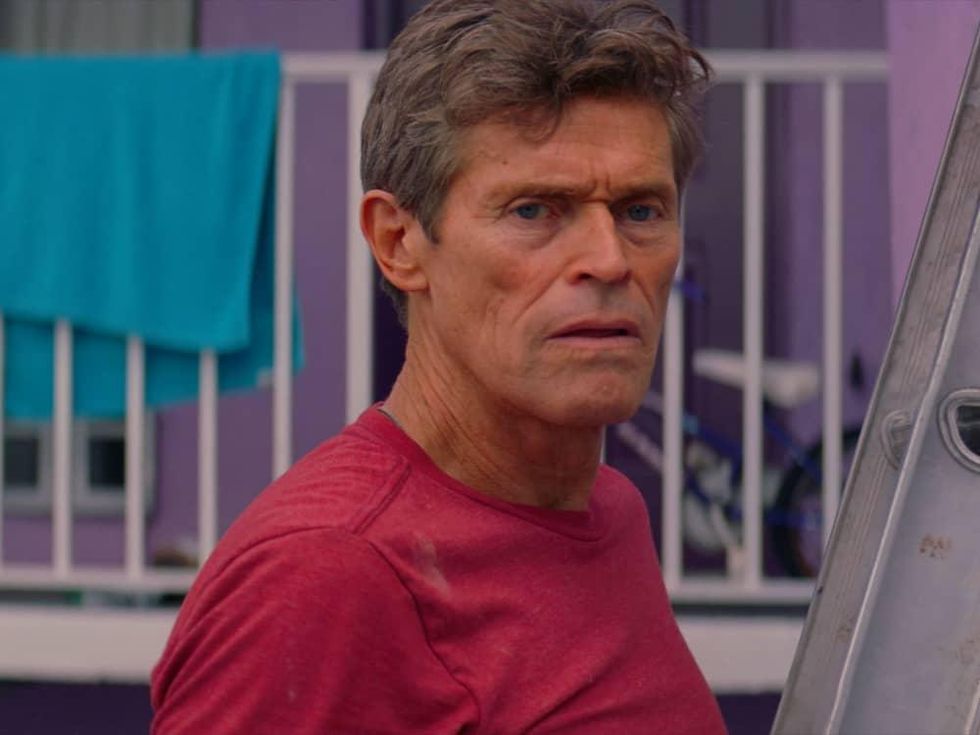Outside of the blockbuster universe, many filmmakers would say they want to make movies that feel true to life. But the need to tell a great story often supersedes that goal, leaving most films with a variety of “movie moments.” True verité-style narrative films are rare, as the audience can be limited.
That seems to be the preferred mode for writer/director Sean Baker, who follows up his iPhone-shot Tangerine with The Florida Project. The new film focuses on the denizens of a run-down Florida motel called the Magic Castle — a real place, by the way — particularly 6-year-old Moonee (Brooklynn Prince) and her mom, Halley (Bria Vinaite).
Halley and pretty much everyone else living in the Magic Castle and neighboring motels are poverty-stricken, scrounging to pay their weekly rents as best they can. One of Halley's most savory money-making schemes is selling wholesale perfume to tourists at local resorts, with Moonee by her side.
Most of the time, Moonee is allowed to roam free with other motel kids, doing mischievous stuff like spitting on cars, begging for free ice cream from strangers, and turning off the motel’s power. The Magic Castle’s manager, Bobby (Willem Dafoe), tolerates Moonee’s misbehavior and Halley’s late rent payments, although there are limits to his patience.
There’s no real story to the film; we merely trail Moonee, Halley, and others as they go about their mostly-sad lives. Baker is keen to juxtapose the struggles they face with the bounties other people enjoy at Disney World, even though the actual place is not seen until the end of the film. The resort lies just a few miles away, but it might as well be a thousand miles for them.
Aside from presenting the premise, Baker does little to make the audience care about his characters. Halley has little personal motivation and almost always chooses options detrimental to her and Moonee. Moonee is a product of her parentage, so it's difficult to write off her antics as merely the actions of a hyperactive child.
Some may see the irritation caused by the characters as a sign that the film is doing its job, making you believe that these people are truly as frustrating as they appear. But if Baker was trying to demonstrate what a big problem poverty is in modern-day America, you’d think he’d want you to feel empathy for his characters.
While the desire to show a side of life that rarely gets portrayed in movies is laudable, there has to be something else on which the story can hang its hat. Instead, Baker delivers two hours of stress and discomfort, a strategy that rarely works.
The flaws of the characters are exacerbated by the fact that almost all the actors are novices. Aside from Dafoe and a couple of other supporting actors, most of the cast has limited acting experience, and it shows. Vinaite’s style is particularly bad, as you can see her grinding her gears trying to remember a line or overacting in a way that normally wouldn’t be allowed.
The Florida Project feels real in all the wrong ways. Ruminations about the poor are valid and worthy of being explored on film, but Baker never makes his story connect.




